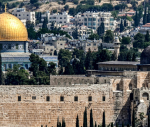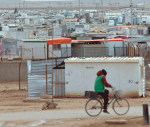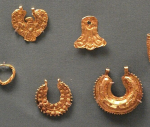You are here
50 years on, Palestinians are as steadfast
Jun 08,2017 - Last updated at Jun 08,2017
Fifty years ago, on June 5, I was in 6th grade when the Israelis attacked and occupied my village Yalu, forced its people to flee and levelled it to the ground, along with the two other neighbouring Latrun villages: Umwas and Beit Nuba.
Those few people who either refused to leave or were unable to do so, because of old age or sickness, were shot at point blank range.
The three Latrun villages, which Israel failed to occupy in 1948 because of the steadfastness of both the Jordanian army and of volunteer fighters from the villages themselves and beyond, bore the brunt of Israel’s brutality and revenge in 1967.
Their story is, in many ways, an epitome of the whole Palestinian tragedy. It is an incarnation of Palestinian dispossession and suffering, on the one hand, and of Israel’s ruthlessness and utter disregard for human life and rights, on the other.
It is also the story of an ongoing injustice.
As far back as they and their ancestors can remember, before that fateful day on June 5, the people of these poor villages — like the people of Palestine at large — were living in peace and minding their own business.
They were not only peaceful, friendly and hospitable, but also diligent, creative and intent upon improving their lives by every means at their disposal.
They excelled in agriculture, in several professions and — especially — in learning.
Their olives, olive oil, wheat, sesame, okra, potatoes, onions, lentil, almonds, grapes, berries, figs, cactus, cucumbers, pomegranate, etc., were particularly popular.
And they provided the neighbouring towns and the country at large with able teachers, house builders, road construction workers, poets, writers, pilots, engineers, and others.
Their only problem was that they fell prey to some Israeli leaders’ unchecked expansionist and colonisation aspirations.
Since their eviction and dispossession on that cruel day on June 5, they dispersed in some of the neighbouring towns and then in Amman and Zarqa — in addition to some Gulf countries, American and European cities.
Despite their loss of home, land and possessions, they continued to focus on education and on skilled labour, and to distinguish themselves in road construction, plumbing, running grocery stores, producing furniture, in addition to teaching, engineering, medicine, etc.
For 50 years, also, they have kept the hope of return alive, despite the many political setbacks that the Palestinian question continued to face — and primarily because of Israel’s greed and dreams of expansion (at the expense of others) and lack of interest in peace.
Like many other peoples of Palestinian towns and villages, they formed an association in the diaspora, which offers valuable support to the people (socially and economically) and keeps the memory of the village alive.
The most remarkable fact, five decades after the loss of the village, is that despite the demise of most members of the generation that lived in and knew the village before 1967, the memory of the village and the desire to return are as alive as they were 50 years ago.
The children have not forgotten, and neither have their children. Ask any one of them, even a 2-year-old, where they are from, and they say they are from Yalu.
Force, power, violence, oppression, dispossession, advanced weapons, manipulation, blackmail, dirty politics and blind support by superpowers may defeat soldiers in battlefields and politicians at negotiating tables, but never the hearts and minds of people.
Israel, through military force and unlimited support from imperialist world powers, may conquer any territory in Palestine and the region that it lays its eyes upon. It, however, failed miserably in cowing Palestinians into submission or acceptance of occupation, whether through fear or through sweat talk.
The other day, I received a calendar from the village association, whose board members are all young people who never knew the village.
The calendar, produced with contribution from the three Latrun villages, contains scenes from the villages before and after demolition, and photos of three prominent persons who distinguished themselves in the village before that June 5, including my own father who was a headmaster of the schools in Umwas and Yalu, which excelled in education, particularly in terms of student results in national exams.
In addition, it contains the text of the following “honour charter” issued this past year by the three associations, one which is both revealing and illustrative of the power of peoples’ attachment to home, hope and resistance: “We the peoples of the three Latrun villages do solemnly swear, by Almighty God and the blood of martyrs never to relinquish our right of return to our homes, villages, and land; never to relinquish one atom of soil from our villages and from all of Palestine, never to accept compensation at the individual or collective level… We also reject all forms of relocation or resettlement anywhere outside the three villages, and we authorise no one to speak on our behalf…”
Simple words by simple people, some may say.
But the true strength of peace-loving Palestinians and Arabs lies in the power of their faith, and in their steadfastness and perseverance.
At the end of the day, peoples’ hearts and minds triumph, not military or other ruthless forms of might.













